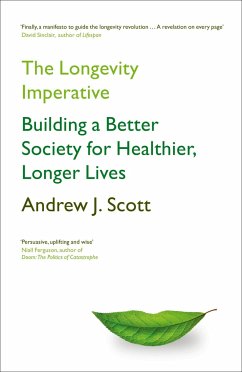
Networks, Knowledge Brokers, and the Public Policymaking Process

PAYBACK Punkte
57 °P sammeln!
Social network analysis provides a meaningful lens for advancing a more nuanced understanding of the communication networks and practices that bring together policy advocates and practitioners in their day-to-day efforts to broker evidence into policymaking processes.This book advances knowledge brokerage scholarship and methodology as applied to policymaking contexts, focusing on the ways in which knowledge and research are utilized, and go on to influence policy and practice decisions across domains, including communication, health and education. There is a growing recognition that knowledge...
Social network analysis provides a meaningful lens for advancing a more nuanced understanding of the communication networks and practices that bring together policy advocates and practitioners in their day-to-day efforts to broker evidence into policymaking processes.
This book advances knowledge brokerage scholarship and methodology as applied to policymaking contexts, focusing on the ways in which knowledge and research are utilized, and go on to influence policy and practice decisions across domains, including communication, health and education. There is a growing recognition that knowledge brokers - key intermediaries - have an important role in calling attention to research evidence that can facilitate the successful implementation of evidence-informed policies and practices. The chapters in this volume focus explicitly on the history of knowledge brokerage research in these contexts and the frameworks and methodologies that bridge these disparate domains. The contributors to this volume offer useful typologies of knowledge brokerage and explicate the range of causal mechanisms that enable knowledge brokers' influence on policymaking. The work included in this volume responds to this emerging interest by comparing, assessing, and delineating social network approaches to knowledge brokerage across domains.
The book is a useful resource for students and scholars of social network analysis and policymaking, including in health, communication, public policy and education policy.
This book advances knowledge brokerage scholarship and methodology as applied to policymaking contexts, focusing on the ways in which knowledge and research are utilized, and go on to influence policy and practice decisions across domains, including communication, health and education. There is a growing recognition that knowledge brokers - key intermediaries - have an important role in calling attention to research evidence that can facilitate the successful implementation of evidence-informed policies and practices. The chapters in this volume focus explicitly on the history of knowledge brokerage research in these contexts and the frameworks and methodologies that bridge these disparate domains. The contributors to this volume offer useful typologies of knowledge brokerage and explicate the range of causal mechanisms that enable knowledge brokers' influence on policymaking. The work included in this volume responds to this emerging interest by comparing, assessing, and delineating social network approaches to knowledge brokerage across domains.
The book is a useful resource for students and scholars of social network analysis and policymaking, including in health, communication, public policy and education policy.














